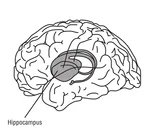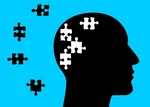

7 creative last-minute Valentine’s Day ideas
So here you are, with Valentine’s Day breathing down your neck… and you still don’t have a plan? No need to panic, here are a few low-budget ideas that can save the day!
Lifestyle
Expected read time: 2 min
Fresh finding tips delivered straight to your inbox!
Why can you remember abstract concepts like ‘E = mc2’ or what tasks or meetings are on your calendar for the day, but not where you lost your wallet?
Why do you forget where your wallet is?
The science of why you lose your wallet
Your sight is an important part of how you form your memories.
What you see gets stored in your short-term memory and if your brain thinks it's important, it passes on to your long-term memory after that.


If you get distracted while you put down your wallet, keys or phone, your eyes, and more importantly, your brain, doesn't register the action and cannot make a spatial memory that you can use later on to find your lost wallet.
Most New Memories Are Quickly Forgotten
The capacity of your short-term memory isn’t only limited to how long you can hold a memory there, but also by how many memories you can hold at once.
You can only remember around 7 things at a time for about 30 seconds in your short term memory, although recent research has shown that the number of things we can remember is closer to 4, due to our decreasing attention span.


Using GPS To Navigate Affects Our Spatial Memory Abilities
We pay less attention to our surrounding and ‘flex’ our brains less when we rely on GPS to get us where we need to go.
When you’re told where to go, your brain doesn’t need to create its own spatial memories or plan your route.


Because you no longer need to remember where you’re going or how you got there, the behavior of your brain changes and the ability to create spatial memories is affected.
You also use spatial memory to remember where you can find your wallet, so decreased spatial memory will also affect your ability to find a lost wallet. You'll have a harder time remembering the space where you misplaced your wallet.
How do we remember where our missing wallet is?
The answer lies in your brain, specifically in the hippocampus, a region in your brain, responsible for your spatial memories.
That image of your wallet on top of a desk in a room that you see in your head?
That was formed and stored in the hippocampus region of your brain when you first put your wallet down so that you can later remember where you left it.


Spatial memory, which the hippocampus helps form, plays a big role in why you remember where you left your wallet (and other things).
Spatial memory is a specific form of memory that belongs to both short-term and long-term memory. It stores long-term information about your surroundings and also short-term changes within it, like where you put your wallet down after you came home from work.
____________________
‘Everyday, we have to remember subtle differences between how things are today, versus how they were yesterday – from where we parked our car to where we left our cellphone,’
Fred H. Gage, senior author on The neuroscience of finding your lost keys
____________________
Spatial memory is why you can go to the bathroom in the middle of the night without turning your lights on, and it’s also the reason why you’ll most likely still stumble on that bag you left in the middle of the hall.


The general map of your apartment is already part of your long-term memory, but the position of that bag (or your wallet) is too new and still belongs to your short-term memory.
When you put your wallet down, the sensation of the action gets transferred to sensory memory, a type of short term memory that only lasts a fraction of a second. When this action is ignored, the sensory memory of it will disappear almost instantaneously, but when you sense it, it will enter your sensory memory.


After that, you either transfer them into your long-term memory (if your brain decides this information is important) or you forget them.
So when you can’t find your wallet, chances are you got distracted by something in your surroundings and your sensory memory didn’t register the action, or you already forgot about the action because your brain decided it wasn’t a priority.
Sources:
https://www.betterhelp.com/advice/memory/how-spatial-memory-works-and-is-lost/
http://www.startribune.com/something-in-our-brain-is-lost-when-we-use-gps/510993052/
https://pdfs.semanticscholar.org/4315/de34b77190ea0907a7b975fadc2c35e9a4f9.pdf
https://www.verywellmind.com/facts-about-memory-2795359
https://www.ncbi.nlm.nih.gov/pmc/articles/PMC5020097/
https://www.salk.edu/news-release/the-neuroscience-of-finding-your-lost-keys/


So here you are, with Valentine’s Day breathing down your neck… and you still don’t have a plan? No need to panic, here are a few low-budget ideas that can save the day!


Behind the curtain of overpriced roses and chocolate, Valentine's Day is so much more interesting than it seems. Use these weird fun facts to impress your Valentine or...


Chipolo LOOP is a rechargeable tracking tag designed to find your essentials and elevate your finding experience at the same time. Explore the new colors and dive into...
Join our newsletter to get 10% off Chipolo POP, plus get weekly updates on deals, tracking tips and tricks, and a dash of fun.